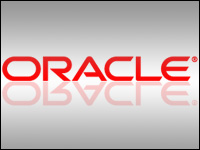
The vast majority of doctors aren’t taking advantage of electronic medical records, with many citing the cost of adoption as a significant impediment, according to a new study that also suggests the tipping point toward broader adoption may be on the horizon.
Just 17 percent of U.S. doctors have access to some version of electronic health records (EHR) systems and only 4 percent of physicians have access to what the study’s authors define as a “fully functional” e-records system, according to the study published Wednesday in the New England Journal of Medicine.
The most common reason cited for not adopting electronic patients records is cost, said the study, which was led by Harvard University and its teaching hospital, Massachusetts General.
Implementation on the Way
“This report shows just that the barriers to widespread adoption of health information technology are still formidable,” said John Lumpkin, M.D., a senior vice president with the Robert Wood Johnson Foundation, which has pushed for faster adoption of e-records as a way to boost patient record portability and reduce medical errors.
The report contains some reasons for hope that broader adoption is coming soon, commented study coauthor Catherine DesRoches, an instructor at Harvard Medical School.
“There is good news in our findings,” she said. “Although the adoption rates are low, we had 42 percent of physicians that said they had either bought a system and they hadn’t implemented it at the time of the survey or that they were planning for the purchase and implementation of a system in the next two years. If these intentions are realized, we could see a good size increase in the number of physicians within electronic health records over the next three to five years.”
Money Changes Everything
The study found that capital costs were cited as the most common reason for steering clear of e-records, with 66 percent of doctors without such systems citing the price tag as a reason.
Confusion about offerings was also a factor, with more than half the doctors yet to take the leap into e-records saying they were unable to find a system that matched their needs, and 50 percent also saying they didn’t see how they would get a return on their investment. Forty-four percent also said they worried that if they bought a system, it would soon become obsolete or outdated.
While cost is a factor, some physicians may also feel that the money they’ll spend on setting up and running electronic records systems will benefit others more than themselves, Sharon L. Howard, senior vice president of sales and marketing at Sage Software, told CRM Buyer.
“One reason physicians have been hesitant to adopt electronic health records is they perceive that they will bear the cost while payers and the government will reap most of the benefits,” she said. “However, that is changing as physicians who have already adopted EHR demonstrate strong return on investment.”
Howard sees adoption growing, especially “as the industry draws closer to interoperable standards.”
Seeing the Benefit
The realization that e-records have clinical benefits may be starting to take root, the study suggested. The majority of those physicians with e-records systems in place had been alerted to a potentially dangerous drug interaction or to a laboratory test result that required follow-up by those systems, it said.
Eighty-two percent of doctors with full e-record setups cited higher-quality clinical decisions as a benefit of the systems while 72 percent noted that they experienced improved communications with patients. Being able to access medical records more quickly was cited by 97 percent of those fully digital docs.
The U.S. government recently said it would move to foster e-records use, announcing a US$150 million Medicare project that will offer doctors direct financial incentives to shift to e-records, paying as much as $58,000 each to some 1,200 doctors’ offices to make the transition over a five-year period.
Broader adoption is almost certain to come thanks to a push into the medical records space by a variety of technology companies, including Google, noted Forrester Research analyst Carrie Johnson.
Google recently launched Google Health, which it bills as a personal health record, and Microsoft also offers a similar product aimed at offices, known as “Health Vault.”
“There is a trade-off between ease-of-use and security and privacy concerns, which remain at the forefront,” Johnson told CRM Buyer. In fact, several high-profile though small-scale breaches of electronic health records have occurred in recent years, incidents that likely help keep those unsure about the value of e-records from moving ahead. “As long as breaches happen and privacy can be compromised, there will be doctors who push back against going digital,” she added.



















































